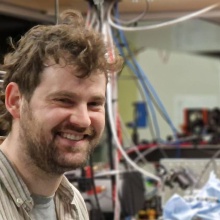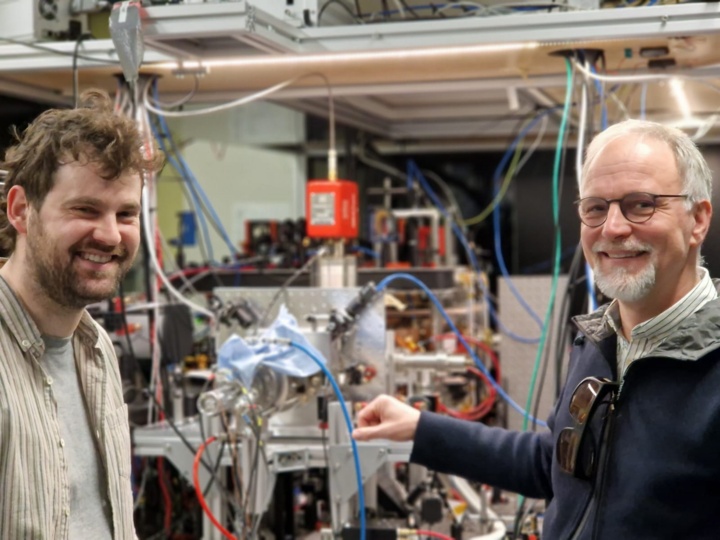Stuttgart, 1.2.2024 – Lucas Lavoine, postdoctoral researcher at the 5th Institute of Physics, has been awarded the prestigious research fellowship for postdocs by the Alexander von Humboldt Foundation for two years to begin in February 2024. The Alexander von Humboldt Foundation awards this fellowship to academics from all over the world with exceptional qualifications who are at the beginning of their academic career. “Receiving the Humboldt Postdoctoral Fellowship is a great honour. Thanks to the numerous meetings throughout the year, I will have the opportunity to meet new people from different fields, gain knowledge and create a unique network for my entire scientific career. Tilman Pfau's 'dipolar quantum gas' team is a pioneer and world-leading group in the study of dipolar long-range interactions in quantum gases. I am grateful for the opportunity to learn, work and collaborate with them on this exciting project,” says Lavoine.
Lucas Lavoine, born in France, completed his Master's degree in physics at the Université Paris-Saclay in 2019. He continued his career in Paris at the renowned Laboratoire Charles Fabry at the Intitute d’Optique and successfully completed his doctorate in 2022 on "Spin Mixture of Bose-Einstein condensate: Quantum droplets and Coherent Coupling ".
Since November 2022 Lucas Lavoine has been a member of the ‘dipolar quantum gas’ team at the 5th Institute of Physics. "We are happy that we were able to gain an experienced experimenter in Lucas," enthuses Tilman Pfau, head of the institute.
Over the next two years, Lucas Lavoine will focus on researching suprasolids. This includes the realization of an ultra-high-resolution quantum gas microscope with which he and his team want to take a close look at dysprosium atoms in order to explore strongly correlated multi-particle physics in dipolar quantum gases in a way that has never been achieved before. This work promises new insights and applications in the field of quantum physics.
With this fellowship, the Alexander von Humboldt Foundation not only recognises Lucas Lavoine's achievements to date, which he has demonstrated in his doctoral thesis, but also the great potential of his future research work. We congratulate Lucas Lavoine on this prestigious award and look forward to following the further progress and findings of his research.



